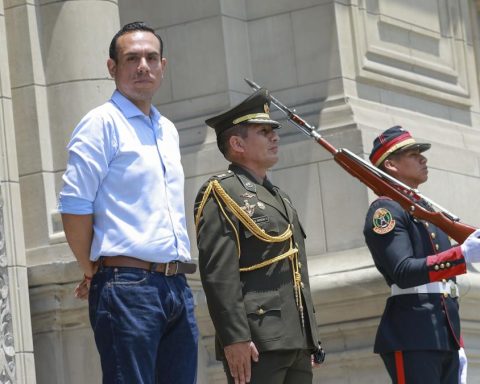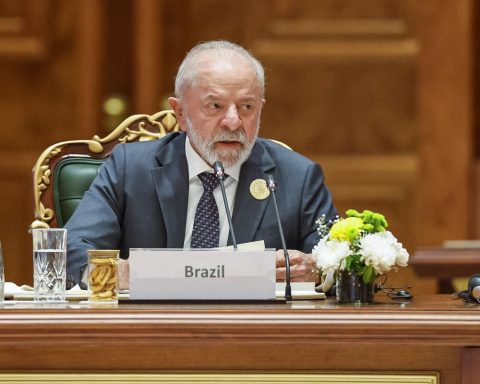The world of digital finance is changing again and Colombia, thanks to the regulations it has been putting forward for this market, has begun to gain ground in Latin America, alongside peers such as Chile and Peru, on giants such as Brazil. Likewise, the needs and tastes of those who prefer to move their money virtually are focusing mainly on intangible money.
These are some of the conclusions of the most recent version of the ‘Citi Securities Services’ report from Citibank, released a few days ago, which also shows that the transition to financial virtuality is happening faster than initially projected, although it is noted that countries, aware of this reality, have begun to move much faster.
More news: The labor market has not yet won the battle against informality, women and young people
Cradle of changes
One of the first results to highlight in the Citi report is that with the current commercialization of digital assets and distributed ledger technology (DLT), the use of digital money that goes beyond digital currencies issued by central banks is set to grow significantly, and six out of 10 investors would plan to turn to options in this area.
In this regard, Okan Pekin, head of Securities Services at Citi, explained that today, alternatives such as stablecoins, tokenized deposits, money market funds and digital payment systems are being targeted to support cash and liquidity requirements for securities settlements. digital by 2026, compared with 15% who plan to use central bank currencies.
Cryptocurrencies.
“The trend is in stark contrast to last year, when CBDC was the preferred choice in digital money, chosen by 52%. For this report, around 500 market participants were surveyed, including institutions on both the buy- and sell-side, and timely insights into the post-trade sector are provided,” Pekin said.
Among other notable findings that emerge from this year’s document:Citibank analysts highlighted that digital adoption is happening at different speeds, with respondents in Latin America leading the way, with 17% of the sample stating that they live with commercial-scale offerings and 14% with MVPs (most valuable players), as the region continues to be the engine of commercial DLT and digital asset activity, with strong growth even in tokenization offerings.
You may be interested in: Invías needs $9 billion to invest in 2025, but will only have $1.1 billion
“The transition to a T+1 timeframe has taken centre stage in the post-trade sector in recent years. Our latest briefing – the largest since launching this series in 2021 – focuses on the next frontier for the industry, which is the increasing applicability of technologies. It includes distributed ledger technology (DLT) and digital assets, and the significant potential for tokenisation at scale. These developments will continue to transform the securities landscape as we move to shorter settlement cycles in multiple markets around the world,” said Citi’s Head of Securities Services.
Regional potential
Digital market analysis also argues that tokenization is ready for action, while digitally native issuance will take longer. This is considering that 62% of sell-side respondents are devoting their DLT and digital asset efforts to tokenizing various asset classes, including public and private assets, versus 8% choosing digitally native securities issuance.

Investment
iStock
“Private networks are preferred on the seller side: 64% of sell-side respondents expect to use private networks (run by banks, technology companies, and MFIs) as asset tokenization expands. However, on the buy-side, asset managers are focusing on public blockchains for fund tokenization and distribution opportunities,” they reported.
Citibank took advantage of this review to talk about the Nuam strategy, the regional holding company that integrated the Santiago, Lima and Colombia Stock Exchanges and said that the creation of a unified regional market in Latin America is an important step towards the consolidation of three markets by 2025 (Chile, Colombia and Peru), which generates a new regional liquidity pool that offers unique benefits to issuers, intermediaries and investors.
You can read: Dian’s revenue potential would have been overestimated again in the Budget
“With a legal structure already in place, project activity is underway in Chile, Colombia and Peru as the planned 2025 launch date approaches. Meanwhile, Latin America’s largest market, Brazil, has been busily laying the groundwork for a real-time financing marketplace,” they said.
This is why Amit Agarwal, Head of Custody at Citi, points out that “The convergence of traditional and digital assets and operating models reinforces the need for modern platforms, trusted data and real-time insights. We expect to see a continued flow of investment in automation solutions, cloud infrastructure, APIs and solutions that integrate with DLT networks.”
The report concluded that the last year has seen significant progress in the automation and restructuring of platforms to accommodate accelerated settlement cycles in the Americas and argues that this has allowed the benefits of T+1 settlement processes to become more evident, positively impacting all participants in the commercial cycle; thus, there is an opportunity for development for Colombia.
That said, he closes by leaving a positive balance on the table in which for them, the global transformation process, which began in 2021, continues to evolve and promises mark a new phase of growth and modernization in global financial markets.

















